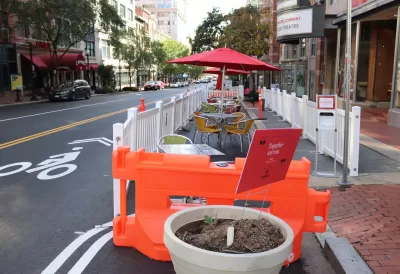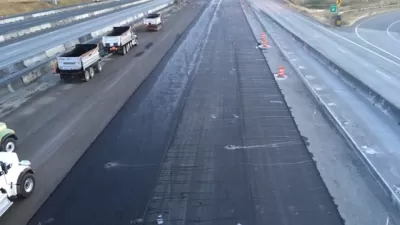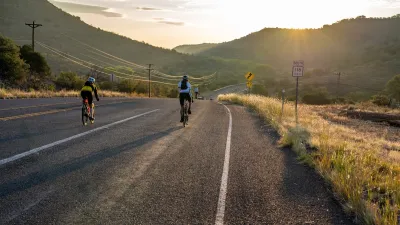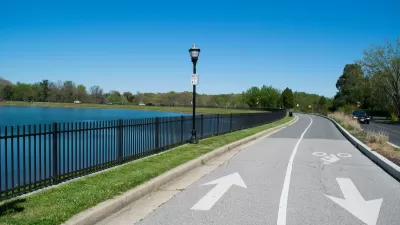Robust investment in the region's public transportation network can ensure a more equitable and sustainable path forward.

Writing in Greater Greater Washington, Caitlin Rogger questions the post-pandemic future of transit in the Washington, D.C. region. "Whether folks take transit, walk, roll, drive, take ride hailing services, or just don’t return physically to the same places they used to is closely tied with equity, livability, environmental quality and economic growth." With a growth in preference for single-occupancy vehicles and private transportation during the pandemic, is the region facing a "Carmageddon?"
If "those who can overwhelmingly choose to drive instead of taking sustainable modes" do so, Rogger argues, the resulting congestion "could choke the region’s economic recovery, and exacerbate health inequalities and environmental issues." To ensure equity and sustainability, she writes, the recovery cannot "be driven by those of us who can afford to drive." Rogger's suggestions for improving regional transit include using traffic downtime to build more bus and bike lanes, restoring transit services to pre-pandemic levels, repurposing parking, incentivizing bike usage through safer infrastructure and storage, implementing congestion pricing, and exploring avenues for lowering the cost of transit and reducing emissions.
The economic benefits of public transit are well documented. "A panoply of studies show that people using bikes, transit or walking to reach business destinations generate more business when they get there." Additionally, workers in low-wage jobs often depend on public transit. "To restore opportunities for lower-income workers that were taken away by the pandemic, it’s essential to ensure that bus services are able to meet riders’ needs with reliable, fast, convenient and affordable service," writees Rogger. If city leaders want to achieve their goal of a more equitable future, "that future requires vision and sustained investment in actions that will bring it about."
FULL STORY: Carmageddon? DC’s leaders can choose a different road.

Planetizen Federal Action Tracker
A weekly monitor of how Trump’s orders and actions are impacting planners and planning in America.

San Francisco's School District Spent $105M To Build Affordable Housing for Teachers — And That's Just the Beginning
SFUSD joins a growing list of school districts using their land holdings to address housing affordability challenges faced by their own employees.

The Tiny, Adorable $7,000 Car Turning Japan Onto EVs
The single seat Mibot charges from a regular plug as quickly as an iPad, and is about half the price of an average EV.

With Protected Lanes, 460% More People Commute by Bike
For those needing more ammo, more data proving what we already knew is here.

In More Metros Than You’d Think, Suburbs are Now More Expensive Than the City
If you're moving to the burbs to save on square footage, data shows you should think again.

The States Losing Rural Delivery Rooms at an Alarming Pace
In some states, as few as 9% of rural hospitals still deliver babies. As a result, rising pre-term births, no adequate pre-term care and "harrowing" close calls are a growing reality.
Urban Design for Planners 1: Software Tools
This six-course series explores essential urban design concepts using open source software and equips planners with the tools they need to participate fully in the urban design process.
Planning for Universal Design
Learn the tools for implementing Universal Design in planning regulations.
Smith Gee Studio
City of Charlotte
City of Camden Redevelopment Agency
City of Astoria
Transportation Research & Education Center (TREC) at Portland State University
US High Speed Rail Association
City of Camden Redevelopment Agency
Municipality of Princeton (NJ)





























